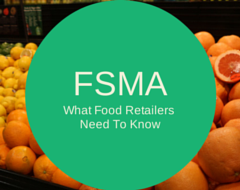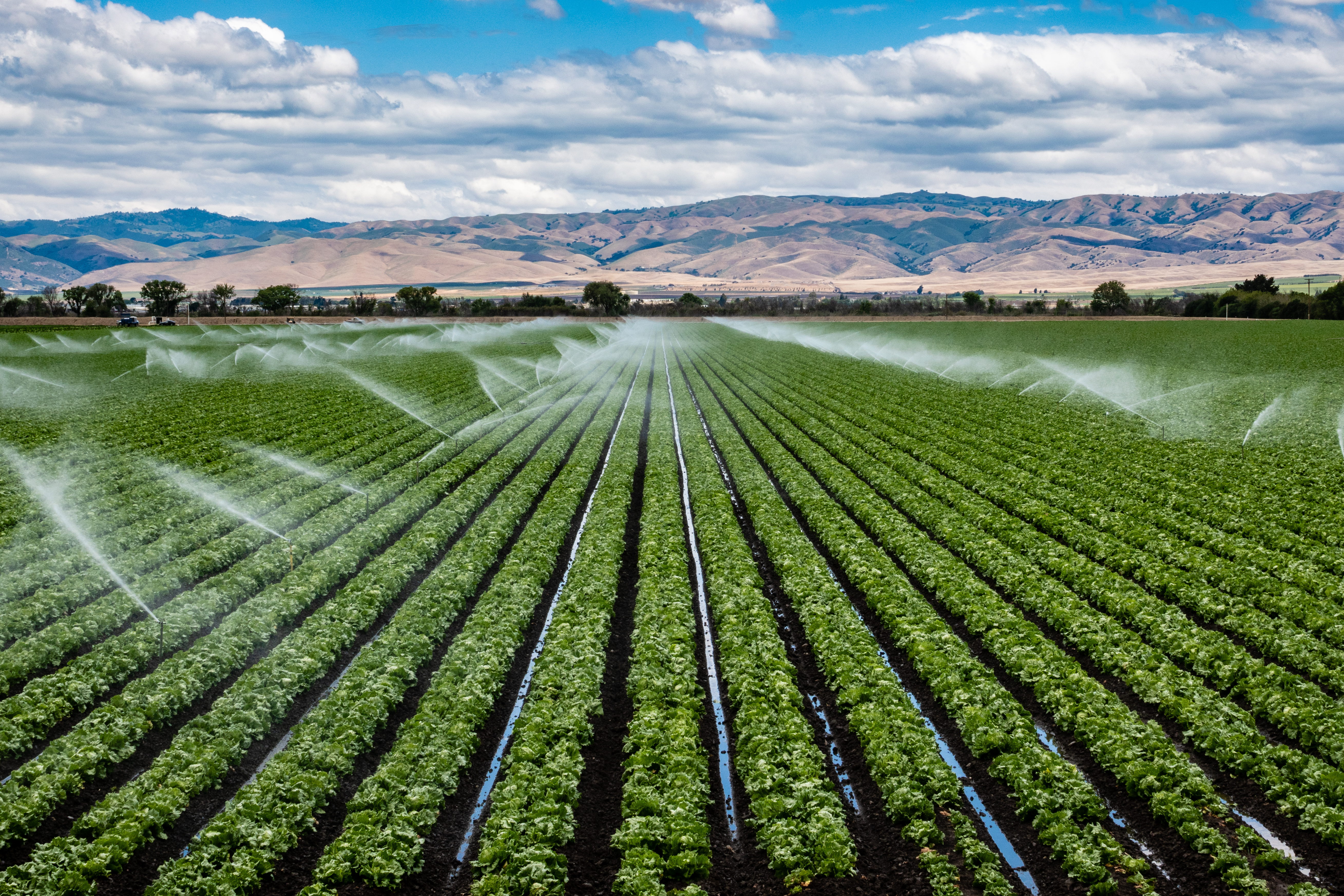By: Stephanie Barnes, Regulatory Counsel, Food Marketing Institute 
This post is part of a series on What Food Retailers Need To Know About The Food Safety Modernization Act.
This is the last blog post in the Food Safety Modernization Act (FSMA) series, and I thought it was only appropriate to end with the most recent updates on FSMA implementation. On September 19, 2014, the Food and Drug Administration (FDA) published four supplemental proposed rules that include key changes to the Preventive Controls for Human and Animal Food, Produce Safety and the Foreign Supplier Verification Program rules. It’s quite rare for an agency to republish proposed rules and the changes are an important step in ensuring that final regulations are risk-based and practical for all regulated industries affected by FSMA. It also signifies the importance of submitting comments to highlight and explain industry concerns with government regulations. Overall, the supplemental rules are more targeted, flexible and risk-based. Comments are due to the FDA December 15, 2014.
On issues of key importance to FMI members—including domestic supplier verification, the most significant issue impacting retailers and wholesalers in all of FSMA—FDA adopted the positions advocated for by FMI. This means retailers and wholesalers will potentially save tens of billions of dollars in compliance costs annually. With respect to the application of preventive controls for human and animal food, many of the proposed changes mirror those proposed in the human food rule and the foreign supplier verification program rule.
Preventive Controls for Human Food: Product testing, environmental monitoring, supplier controls:
- Supplier Verification: Supplier controls would be required when the receiving facility’s hazard analysis identifies a significant hazard for a raw material or ingredient, and that hazard is controlled before the facility receives the raw material or ingredient from a supplier. Only facilities that manufacture/process raw materials or ingredients will be required to conduct supplier verification. The facility would have flexibility to determine the appropriate verification activity (such as onsite audit, sampling and testing) unless there is reasonable probability that exposure to the hazard will result in serious adverse health consequences or death to humans (SAHCODHA). For Class 1 hazards or SAHCODHA, an annual onsite audit of the supplier would be required unless the facility can show that other verification activities and/or less frequent onsite auditing of the supplier provide adequate assurance that the hazards are controlled. Warehouses and distribution centers will not be required to conduct supplier verification on the products they receive.
- Environmental Monitoring would be required in the specific circumstances where ready-to-eat (RTE) product is exposed to the environment prior to packaging and the packaged food does not receive a treatment that would significantly minimize an environmental pathogen that could contaminate the food when it is exposed. Environmental monitoring is not required for holding facilities such as distribution centers.
- Economically Motivated Adulteration: Facilities are required to consider hazards that may be intentionally introduced for economic gain in their hazard analysis.
- Product Testing: FDA is not requiring that distribution centers conduct finished product testing. Instead, the Agency is providing flexibility for a facility to make risk-based decisions on when product testing would be appropriate. Product testing would be required as an activity for verification as appropriate to the facility, the food, and the nature of the preventive control.
See FMI’s Comments on the original Proposed Rule.
Foreign Supplier Verification:
The most significant issue decided by FDA in issuing the supplemental FSVP rule was whether or not to require annual onsite audits when there is a reasonable probability that exposure would result in serious adverse health consequences or death (SAHCODHA) controlled by foreign suppliers. FMI supported an annual onsite audit requirement for such hazards. Ultimately, FDA adopted a hybrid approach, which will require greater use of annual onsite food safety audits. This hybrid approach is found in both the Preventive Controls for Human and Animal Food rules. FDA also made changes to the hazard analysis requirement contained within the rule and as is the case in both preventive controls rules, requires economically-motivated adulteration to be considered in the FSVP hazard analysis.
- Annual Onsite Audits: For SAHCODHA hazards, an annual onsite audit is required unless the importer can determine that other verification activities and/or less frequent auditing provide adequate assurances that hazards are controlled. Along with the hazard analysis the importer must consider other factors primarily related to supplier risks in determining appropriate supplier verification before importing from a particular supplier and thereafter when the importer becomes aware of new information about these risks.
- Significant Hazards: FDA has proposed to replace the term “significant hazard” with “hazard reasonably likely to occur” to avoid the potential for misinterpretation that all necessary preventive controls must be established at critical control points.
- More Comprehensive Hazard Analysis Requirements: The FDA is proposing a more comprehensive evaluation of food and supplier risks by combining the proposed requirement that an importer conduct a compliance status review of each food to be imported and each foreign supplier being considered, with the proposed requirement than an importer analyze the hazards in each food. Importers are now required to conduct a more comprehensive hazard analysis which examines compliance history of the supplier in the context of the nature of hazards in the food, the entity controlling the hazards (e.g. foreign supplier or foreign supplier’s ingredient supplier), the foreign supplier’s food safety practices and the foreign supplier’s performance history. The separate compliance status review requirement in the original FSVP rule has been eliminated and folded in to this requirement.
See FMI’s Comments on the original Proposed Rule.
Produce Safety:
The key areas FDA addressed in the supplemental Produce Safety Rule related to water quality and biological soil amendments. FMI did not comment on either of these matters, instead deferring to the produce industry.
- Updated Water Quality Standard: The FDA is proposing various revisions to the microbial standard for water that is directly applied during the growing of produce. Revised Definition of Farms: The definition of “farm” would be revised; a farm would no longer be required to register as a food facility merely because it packs or holds raw agricultural commodities grown on another farm under a different ownership. Such activities would be subject to the produce safety rule rather than the preventive controls rule for human food.
- Covered Farms Better Defined: Farms or farm mixed-type facilities with an average annual monetary value of produce sales of $25,000 or less will not be covered.
See FMI’s Comments on the original Proposed Rule.
Preventive Controls for Animal Food:
The key issue in the proposed rule of concern to retailers and wholesalers was the regulation of human food by-products sold in the animal food supply chain. Under the original proposed rule, many retailers and wholesalers were concerned that the burden imposed by the regulations would be so costly that it would prevent them from continuing the practice of selling human food by-products as animal food. FDA responded to these concerns and made clear that the burdens on retailers, wholesalers and others who sell human food by-products as animal food will be minimal.
- Human Food Processors already complying with FDA human food safety requirements would not need to implement additional preventive controls or Current Good Manufacturing Practice (CGMP) regulations when supplying a by-product (e.g., fruit or vegetable peels, liquid whey) for animal food, except for proposed CGMPs to prevent physical and chemical contamination when holding and distributing the by-product (e.g., ensuring the by-product isn’t co-mingled with garbage). However, further processing a by-product for use as animal food (e.g., drying, pelleting, and heat treatment) would require compliance with the preventive controls for animal food rule.
- Product Testing, Environmental Monitoring, Supplier Controls and Economic Adulteration: FDA is seeking similar requirements for the Preventive Controls for Human food.
See FMI’s Comments on the original Proposed Rule.
Additionally, to help our members understand what the proposed rules mean to food retailers; we have developed a FSMA resource webpage and a FSMA question portal where FMI members can submit questions they have on FSMA implementation. We will respond to each question and subsequently post the Q&A on our website for others to view. We hope that you found these blog posts helpful and encourage you to submit additional questions to us or through the FSMA question portal.


 Industry Topics address your specific area of expertise with resources, reports, events and more.
Industry Topics address your specific area of expertise with resources, reports, events and more.
 Our Research covers consumer behavior and retail operation benchmarks so you can make informed business decisions.
Our Research covers consumer behavior and retail operation benchmarks so you can make informed business decisions.
 Events and Education including online and in-person help you advance your food retail career.
Events and Education including online and in-person help you advance your food retail career.
 Food Safety training, resources and guidance that help you create a company food safety culture.
Food Safety training, resources and guidance that help you create a company food safety culture.
 Government Affairs work — federal and state — on the latest food industry policy, regulatory and legislative issues.
Government Affairs work — federal and state — on the latest food industry policy, regulatory and legislative issues.
 Get Involved. From industry awards to newsletters and committees, these resources help you take advantage of your membership.
Get Involved. From industry awards to newsletters and committees, these resources help you take advantage of your membership.
 Best practices, guidance documents, infographics, signage and more for the food industry on the COVID-19 pandemic.
Best practices, guidance documents, infographics, signage and more for the food industry on the COVID-19 pandemic.
